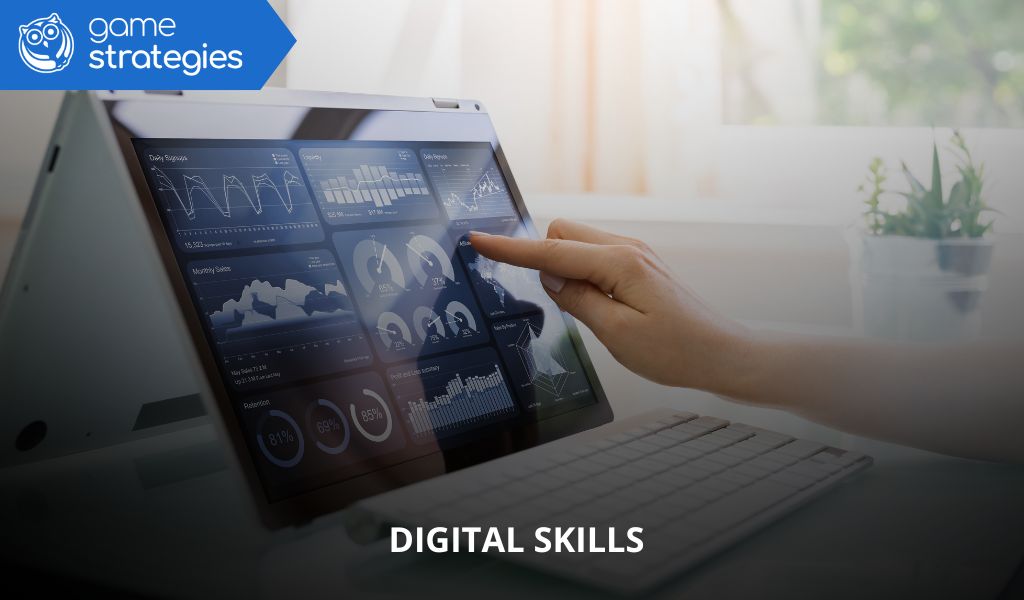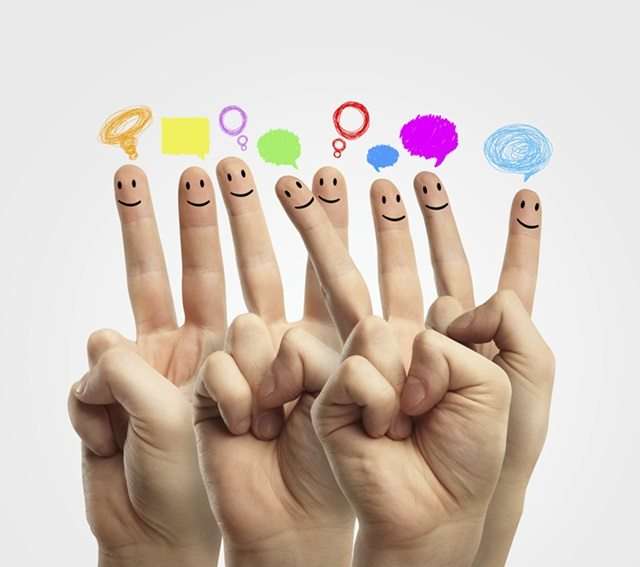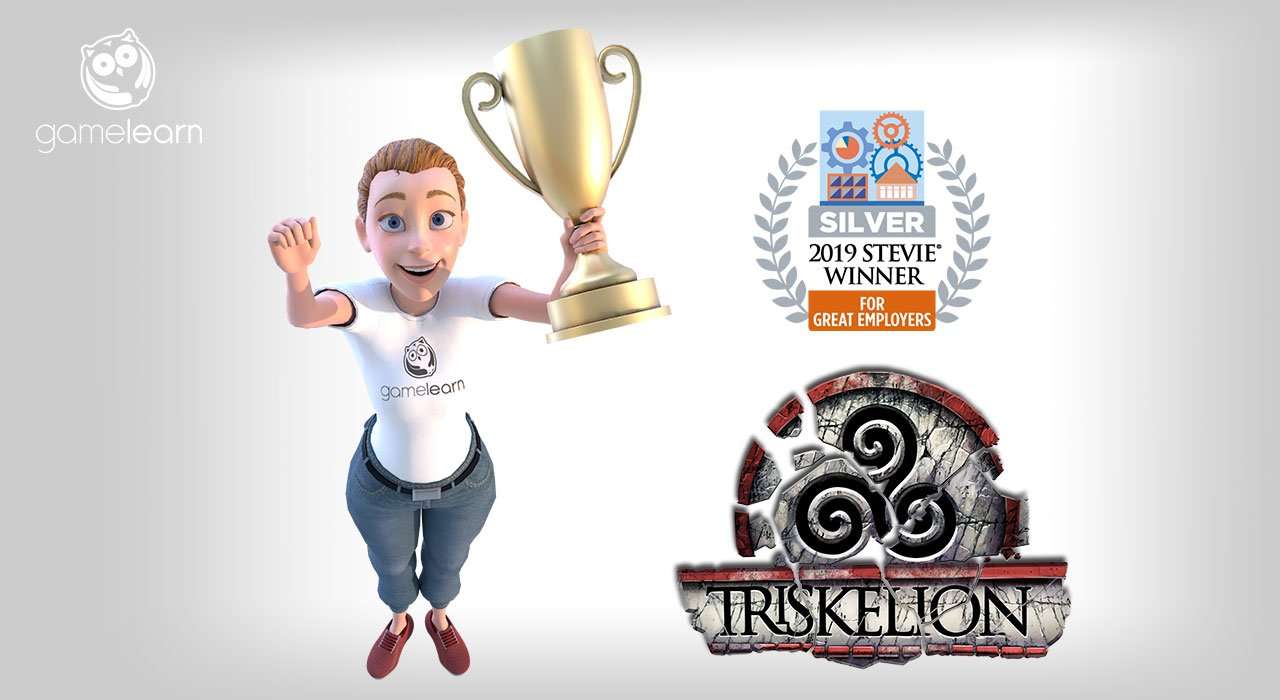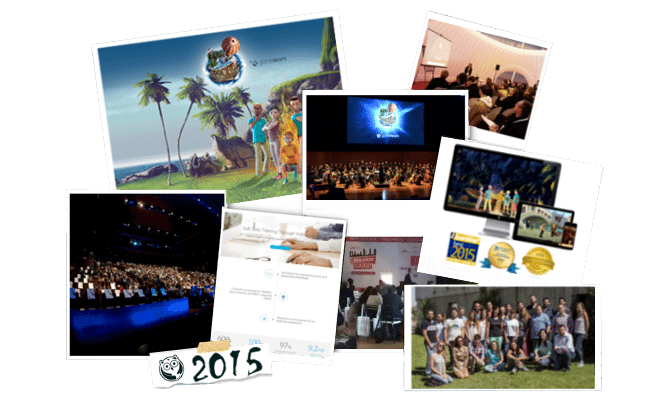We live in an era where technology not only transforms industries but also the way we work, learn and communicate. In this context, mastering digital skills is no longer a competitive advantage but a basic necessity. But do we really understand what digital skills involve and how to develop them? In this article, from GameStrategies.io we explain everything you need to know: from their definition to their practical application in both educational and business environments.
What are digital skills and why are they essential today
Definition of digital skills
Digital skills are the set of abilities, knowledge and attitudes required to interact effectively, critically and safely with digital technologies. It is not just about knowing how to use a computer or an app, but about understanding how the digital environment works, adapting to its changes and making the most of available tools.
These skills range from basic tasks such as sending an email or creating a document, to more complex aspects like protecting personal data, collaborating in virtual environments or solving technical issues.
How digital skills have evolved with technological transformation
A few years ago, digital skills mainly meant managing office software or browsing the internet. Today, the landscape has changed radically. With the rise of cloud computing, artificial intelligence, automation and the digital economy, people are expected to:
- Interact in real time across multiple devices.
- Evaluate the reliability of online information.
- Produce original and collaborative content.
- Participate in digital communities safely and ethically.
Technological transformation has raised the bar. Digital literacy now requires adaptability, critical thinking and the ability to learn independently.
Why digital skills are key in both education and business
In education, digital skills enable students and teachers to participate actively in online learning, access diverse sources, develop autonomy and collaborate globally.
In business, these skills are indispensable for:
- Working remotely or in hybrid environments.
- Using collaborative and management platforms.
- Analysing data and making digital-driven decisions.
- Interacting with clients and colleagues across multiple channels.
A workforce with strong digital skills is more productive, flexible and better prepared to face technological change without friction.
Main types of digital skills
Digital skills are not a single block. They are divided into different areas, ranging from technical to strategic.
1. Information and digital literacy skills
These involve the ability to search, filter, evaluate and use digital information effectively. They include:
- Using search engines and logical operators.
- Distinguishing reliable sources from false information.
- Managing data ethically.
- Storing and organising files efficiently.
These skills are essential in workplaces or academic settings where information overload can lead to disinformation or wasted time.
2. Communication and collaboration in digital environments
In a connected world, it is essential to interact with others through digital tools. This includes:
- Using emails, chats and video calls effectively.
- Taking part in collaborative projects through digital platforms.
- Understanding digital etiquette (netiquette).
- Managing both personal and professional digital identity.
Effective digital communication prevents misunderstandings and strengthens teamwork, even in remote contexts.
3. Digital content creation
This means not only consuming but also producing information and expressing oneself digitally:
- Creating documents, presentations, images or videos.
- Editing and adapting content for different formats.
- Applying copyright and licences correctly.
- Using design, web development or multimedia editing tools.
Content creation enhances the ability to convey ideas, influence and add value in digital environments.
4. Digital security and information protection
This covers responsible management of one’s own and others’ identity and data. It includes:
- Creating secure passwords and using authentication systems.
- Recognising phishing, malware or fraud attempts.
- Correctly configuring privacy settings on digital platforms.
- Understanding digital rights and applicable legislation.
Security is a critical component that affects both individuals and organisations.
5. Problem-solving and critical thinking in digital environments
This reflects the ability to face technological challenges logically, creatively and autonomously:
- Diagnosing common technical errors.
- Finding solutions using digital resources.
- Learning new tools or systems independently.
- Innovating in the use of digital technologies to solve real needs.
Digital critical thinking not only allows adaptation to change but also leadership in driving it.
How to develop digital skills effectively
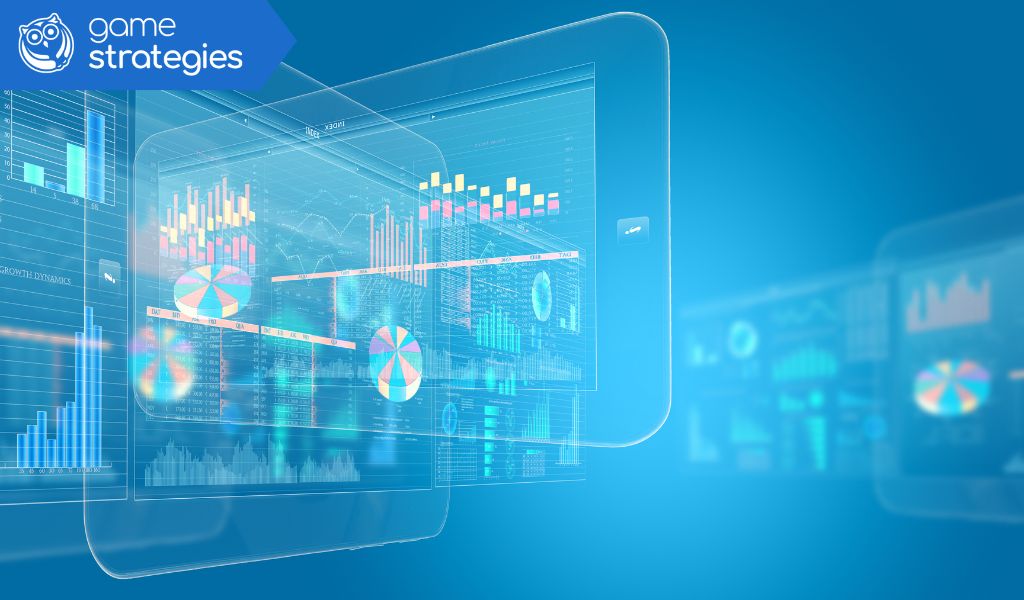
It is not enough to read tutorials or attend courses. The real development of digital skills requires practice, context and motivation.
The role of practical and experiential learning
We learn best when applying what we have learned. Practical environments are therefore essential:
- Real-case simulations.
- Collaborative projects.
- Practical challenges and problem-solving.
- Project-based work using real digital tools.
Theory gains meaning when learners connect it with applicable needs or challenges.
How gamification enhances retention and motivation
Gamification applies game dynamics (levels, points, rewards, challenges) to learning to make it more engaging. In digital skills development:
- It motivates learners to explore new tools without fear of mistakes.
- Increases sustained participation.
- Reinforces progress with visible achievements.
- Encourages repetition without boredom.
Gamified training transforms learning into an active and emotionally significant experience.
The importance of mistakes, feedback and repetition
Digital environments evolve rapidly. Mistakes are part of adaptation. Therefore:
- Errors must be safe: no penalties, but with simulated consequences.
- Feedback should be immediate and personalised, reinforcing what is correct and correcting deviations.
- Spaced repetition helps consolidate technical skills long term.
Deliberate practice, combined with the right feedback, turns trial and error into a growth tool.
The impact of storytelling on acquiring technical skills
Integrating stories and real-life situations into digital learning creates emotional connections with content. This:
- Improves retention by activating narrative memory networks.
- Boosts motivation through empathy with characters or situations.
- Places knowledge in a functional and applicable context.
Storytelling transforms technical skill acquisition into an experience with meaning and purpose.
What does a platform like game strategies do in this process?
Developing digital skills requires more than content. It needs a platform combining pedagogy, technology and user experience. This is where Game Strategies makes the difference.
Training digital skills through simulators
Game Strategies enables training in digital skills through interactive simulators replicating real professional scenarios:
- Using collaborative tools in team dynamics.
- Solving common technical issues.
- Critically evaluating digital information in real time.
- Making decisions in data-driven and automated environments.
Learners not only know what to do but also how to do it, when to apply it and what consequences each decision has.
Real cases of integrating digital skills in daily work
Many organisations already use Game Strategies to enhance their teams’ digital performance. Examples include:
- Introducing cybersecurity skills for non-technical profiles.
- Improving the use of online project management tools.
- Transforming onboarding processes with gamified simulators.
- Increasing effective use of internal digital communication channels.
These projects impact not only learning but also productivity and workplace culture.
How digital skills connect with behavioural change
Unlike other platforms, Game Strategies does not only measure progress in content but demonstrates real behavioural change. It does this through:
- Analytics on digital performance in simulated contexts.
- Real-time feedback on the use of digital tools and processes.
- Evaluations that link learning data with operational KPIs.
- Mechanisms to reinforce sustainable digital habits.
The goal is not just that teams “know more”, but that they act better in a digitalised environment.
Digital skills are essential in today’s world, both for continuous learning and professional performance. It is not only about managing technology but thinking and acting effectively within it.
From digital literacy to problem-solving, mastering these skills is vital to adapt, innovate and grow. But development does not happen spontaneously. It requires strategy, practice, motivation and the right tools.
If your organisation is seeking a real, effective and measurable way to develop digital skills within its teams, Game Strategies provides the technology and pedagogical approach to make change possible.
Ready to transform how your team learns, collaborates and adapts digitally?
Discover how at GameStrategies.io and start building digital talent with real impact today.
¿De cuánta utilidad te ha parecido este contenido?
¡Haz clic en una estrella para puntuarlo!
Promedio de puntuación 0 / 5. Recuento de votos: 0
Hasta ahora, ¡no hay votos!. Sé el primero en puntuar este contenido.

